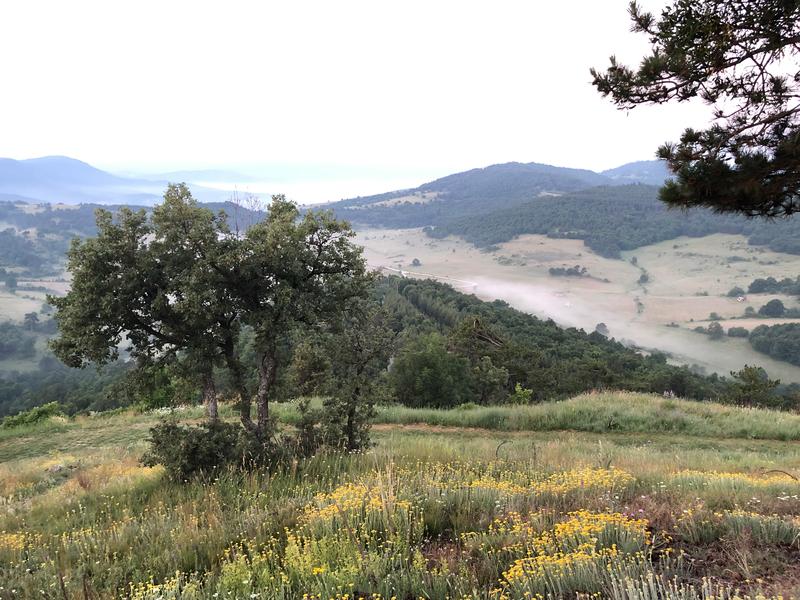The collection of herbs for commercial purposes from 24 species of medicinal plants from their natural habitats is prohibited
04 Mar, 2025 | 12:08
- The order of Minister Manol Genov on the special regime for the protection and use of medicinal plants in 2025 has been promulgated.
The annual order of the Minister of Environment and Waters on the special regime for the protection and use of medicinal plants for the calendar year 2025 has been promulgated in the State Gazette.
The special regime for protection and use applies to species whose resources show a permanent trend of decline and there is a threat to their natural distribution in nature.
This year, the permissible quantities of herbs (in kg of dry weight) for collection of 11 medicinal plants from their natural habitats outside the territory of the three National Parks have also been determined, namely: red peony (Paeonia peregrina Mill.); alder buckthorn (Frangula alnus Mill.); medicinal primrose (Primula veris L.); catnip, white wormwood (Artemisia alba Turra); Lazarkinya, fragrant genjovche (Galium odoratum (L.) Scop.); mad licorice, old licorice (Atropa belladonna L.); medicinal ranilist (Betonica officinalis L.); stemless lattice (Carlina acanthifolia All.); spicy fatstiga, yellow window (Sedum acre L.); sour thistle (Berberis vulgaris L.); foxglove (Alchemilla vulgaris complex).
The quantities specified in the annex to the order are subsequently distributed by the directors of the relevant Regional Inspectorates for the Environment and Water to the companies that have submitted applications for use.
The order prohibits the collection of herbs from 24 types of medicinal plants from their natural habitats throughout the country. These include valerian, prickly pear, bearberry, white oregano, Icelandic lichen, various types of salep, yellow poppy, white oregano, lily of the valley, medicinal marshmallow, etc. Some of them are easily cultivated and the goal is for them to be grown for commercial purposes, and not collected from their habitats in the wild.
Please note that these prohibitions do not include collection for personal needs in quantities specified in the Medicinal Plants Act. The only exception, for another year, is the encountered under different names Mursal, Pirin or Alibotushki tea (Sideritis scardica Grisb.), which is prohibited for collection even for personal needs throughout the country. The ban on picking the medicinal plant for commercial and personal needs is aimed at restoring its natural habitat. Mursal tea is easily cultivated and is widespread in almost all private yards of the settlements around its natural distribution. There is a lot of scientific evidence that the medicinal properties are the same as those of plants growing in the wild. However, in order to trade (including sale at local markets), a document from a registered agricultural producer must be available. For the prickly leaf, which is used in flower shops for bouquets, it is necessary to have import documents.
We appeal to lovers and traders of herbs to get acquinted with the names of medicinal plants - some have several folk names. The leading one is the Latin and scientific name, so that there is no confusion when collecting or treating with them independently. We also urge citizens not to buy herbs from markets whereby the plants do not have legal documents of origin.
For additional information or to report violations, you can contact the relevant regional inspectorates for environment and water, which monitor the implementation of the order.
The order for the special regime for the protection and use of medicinal plants in 2025 is also available on the website of the Ministry of Environment and Water at:
https://www.moew.government.bg/bg/priroda/zakonodatelstvo/nacionalno-zakonodatelstvo/zapovedi/
